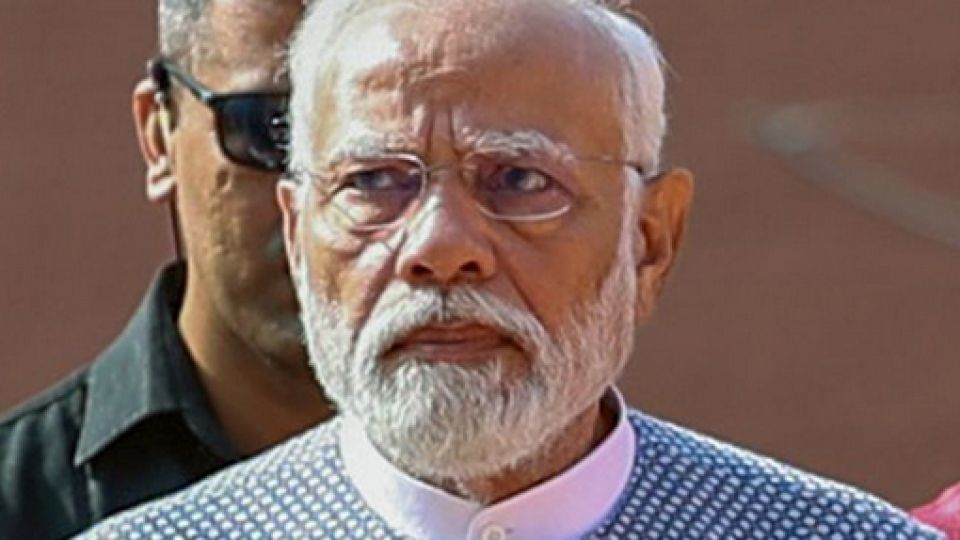June 12, 2024
ISLAMABAD – THE change is cosmetic for the Modi government, for at the end of the day, it’s still a Modi government. For the opposition, the elections have brought a new energy and clarity of purpose. Principally, it is the fight for the idea of India as enshrined in the constitution.
The poorest voters feared the 400 seats sought by Narendra Modi were to subvert Dr Ambedkar’s statute book of rights and duties, which has so far guarded their core interests. They are the ones who cut the BJP to size.
If we remember Nehru’s election symbol, it was a pair of bullocks, indicating the Congress party’s rural base. After Manmohan Singh surrendered it to the stock exchange, Rahul Gandhi is putting the focus back on villages, their caste challenges, and the quest for jobs for their unemployed youth swarming the cities. The two ideals stated in the preamble that irk the Hindu right greatly are the promise to defend ‘secularism’ and ‘socialism’. And both have surfaced promptly in the opposition’s campaign. It is not uncommon in Delhi’s drawing rooms to hear the Congress being cursed for egalitarian appeal but it appears to have been reinvented with Rahul Gandhi’s reinvention of himself.
On the other side, Prime Minister Modi has lost his swagger given the compulsions of yielding to powerful regional satraps pressing their own interests, which takes a toll. Listening to others for the first time would be a test of patience for him, for he has no experience whatsoever of working with a coalition — not in Gujarat, not in Delhi.
Equally importantly, meantime, is his giving up the habit of referring to himself in the third person. Modi’s guarantee. Modi’s promise. These have been replaced with NDA this, NDA that. He is lampooned more freely since the results downsized him on June 4. A caricature shows West Bengal Chief Minister Mamata Banerjee measuring his hollowed chest with a tape, and exclaiming: “20 inch!” She, indeed, deflated the BJP in West Bengal by more than the 36 inches she expunged from Modi’s boast of having a 56-inch chest.
All this is greatly amusing if the trimming of his wings is what one should be rejoicing over. True also are the visuals about Muslims, where the brakes have been evidently applied on abusive trolling against them.
But has Modi given up his belief of being a divine avatar, different from fellow humans? None can say for sure, for Modi is Modi. How could he give up all his ingrained habits and beliefs in one go?
On the first day in office — while curiously delaying the allocation of portfolios to 72 ministers amid rumours of a tussle — he signed off a routine money transfer to the farmers’ fund, only to claim to TV cameras that he was a lover of farmers. This gave the Congress a chance to interrupt his reverie. “The headline management and PR campaign of the one-third prime minister has once again started from the first day of his third term,” said Jairam Ramesh. Opposition MP Supriya Sule ad-libbed that the need was to wipe off the farmers’ debt — something Modi readily does for his corporate associates — not give them a dole.
Beyond the cosmetic veneer is the question: can he solve India’s problems of unemployment and biting inflation? Not within the confines of the neoliberal top-down economy he embraced, in fact, inherited from Manmohan Singh’s government. He gave five kilos of rice to the poor with his photo beaming from every bag or gas cylinder given in heavily advertised charity. During the campaign, he was seen asking the people to return the favour — and would they not. Indeed, many women voted for him.
Would that solve the problems of yawning disparity, sub-Saharan human development indices in BJP-ruled states? Very unlikely. When asked about the telling economic disparity, Mr Modi had famously snapped: “Shall I make everyone poor?” If that answer isn’t tweaked or edited soon, things would begin to look pretty much as they did.
On the wider landscape, there is the challenge of social harmony. In the early hours of Friday, shortly before Mr Modi was unanimously asked to head the NDA group as a prelude to his third swearing-in, two Muslim men were lynched in BJP-ruled Chhattisgarh.
According to The Hindu, the residents of Uttar Pradesh — Guddu Khan and Chand Miya Khan — were found dead while a third, Saddam Qureshi, sustained injuries in the Arang area of Raipur district. A common relative of Chand and Saddam said the three were lynched by a mob. He claimed they were waylaid, their vehicle was punctured, and they were thrashed and thrown off a bridge, causing the death of Chand and Guddu and injuries to Saddam. ‘Nine to ten persons’, some with previous history of cow vigilantism, have been questioned but a case was registered only for culpable homicide, not murder.
In Jammu, on Saturday, the day of the swearing-in, suspected Kashmiri gunmen opened fire on a bus carrying Hindu pilgrims to the Vaishno Devi Temple. The bus fell into a gorge killing nine and injuring several.
How shall we read both the incidents? Is India headed for more of the same under Modi’s new term? Or will things change because the two centrist allies are expected to heal the mistrust sowed between Hindus and Muslims in Kashmir and elsewhere? Are we to expect anything to improve the lot of Manipur where anti-Christian violence erupted again following the elections when the BJP retained power in the state assembly and the Congress won two MPs?
Meanwhile, an NDA ally from Maharashtra refused to take the oath of office, rejecting a junior minister’s portfolio. Praful Patel has been a ranking minister in earlier cabinets. There’s trouble brewing for Mr Modi ahead of crucial state polls in BJP-ruled Maharashtra and Haryana in October.


